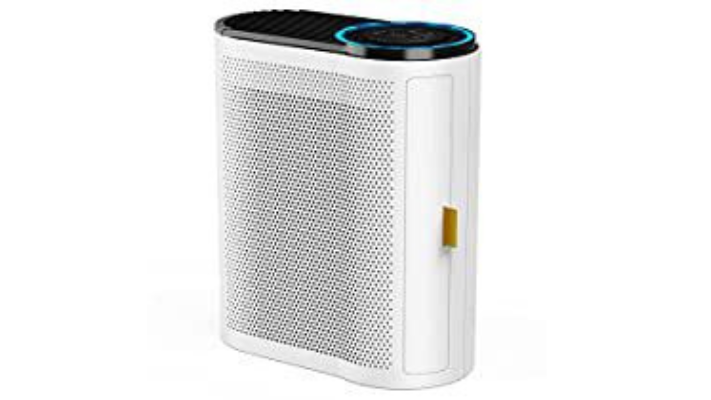How to Choose a Better Air Filter for Cleaner Indoor Air?

How to Choose a Better Air Filter for Cleaner Indoor Air?
Indoor air quality isn’t something most of us think about—until we start sneezing, coughing, or noticing a layer of dust settling a little too quickly. If you’re tired of dealing with allergies, pet dander, or musty odors, it might be time to upgrade to a better air filter. At a better filter, we believe that choosing the right air filter can make all the difference in creating a cleaner,healthier home
But how do you pick a better air filter when there are so many options? Let’s break it down in a simple, practical way.
Why You Need a Better Air Filter
Picture this: You just spent an entire weekend deep cleaning your home. The floors are spotless, the counters shine, and the air smells fresh. But within days, you notice dust building up again. The culprit? A low-quality air filter that isn’t trapping particles effectively.
A better air filter doesn’t just remove dust; it catches pet hair, pollen, mold spores, and even microscopic bacteria. This means fewer allergy symptoms, less respiratory irritation, and a healthier living space.
Now, let’s talk about how to choose the best one for your needs.
Step 1:Understand MERV Ratings
One of the most important things to look for in a better air filter is its MERV rating (Minimum Efficiency Reporting Value). This rating tells you how effective the filter is at trapping particles.
MERV 1-4: Basic filters that capture large particles like dust and lint but don’t do much for allergens or bacteria.
MERV 5-8: Better for homes with pets, as they trap pet dander and mold spores.
MERV 9-12: Ideal for allergy sufferers because they filter out finer particles like pollen and dust mites.
MERV 13-16: The gold standard for those with respiratory conditions, as they capture bacteria,smoke, and even viruses.
At a better filter, we recommend choosing a better air filter with at least a MERV 8 rating for general home use. If you have allergies or pets, aim for MERV 11 or higher.
Step 2: Choose the Right Filter Material
Not all air filters are created equal. Here are the most common types
Fiber glass Filters: Cheap but not very effective. They only trap large dust particles. Pleated Filters: A better air filter option, these have more surface area and can capture smaller pollutants.
Electrostatic Filters: These use static electricity to attract airborne particles. Great for pet owners! HEPA Filters: The ultimate choice for clean air, removing 99.97% of particles as small as 0.3 microns.
If you’re looking for the best air filter for your home, pleated or HEPA filters are your best bet.That’s why at a better filter, we focus on offering high-quality pleated filters that balance efficiency and affordability.
Step 3: Consider Your Lifestyle Needs
Choosing a better air filter isn’t just about technical specs—it’s about your home’s unique needs
Do you have pets? A higher MERV-rated filter will trap pet dander and fur. Do you suffer from allergies? Go for a HEPA or MERV 13+ filter to capture pollen and dust mites. Do you live in a city? Pollution and smoke can linger indoors, so a better air filter with a high-efficiency rating is essential.
I learned this the hard way when I moved to a city with high pollution levels. My old air filter just wasn’t cutting it. After switching to a better air filter from a better filter, I noticed an immediate difference—less dust on my furniture, fewer allergy symptoms, and even fresher-smelling air.
Step 4: Replace Your Filter Regularly
Even the best air filter won’t work well if it’s clogged with dirt. A dirty filter forces your HVAC system to work harder, driving up energy costs and reducing efficiency.
Here’s a general guideline:
Change standard filters every 30-60 days. If you have pets, check the filter every 30 days. Allergy sufferers should replace filters every 20-45 days
At a better filter, we make it easy to keep track of filter replacements by offering subscription services—so you never forget to swap out your better air filter on time!
Bonus Tip: Don’t Forget Air Purifiers!
If you want to take your indoor air quality to the next level, consider pairing your better air filter with an air purifier. While air filters clean the air circulating through your HVAC system, air purifiers provide extra filtration for rooms where you spend the most time, like bedrooms and living rooms.
Final Thoughts: Invest in a Better Air Filter for a Healthier Home
The air you breathe matters. Whether you’re battling allergies, pet hair, or just want to keep your home cleaner, upgrading to a better air filter is one of the easiest and most effective ways to improve indoor air quality.
At a better filter, we believe that every home deserves fresh, clean air. By choosing a better air filter with the right MERV rating, material, and replacement schedule, you’ll breathe easier and enjoy a healthier living environment.
So, ready to make the switch? Browse our selection of better air filters today and experience the difference for yourself!
